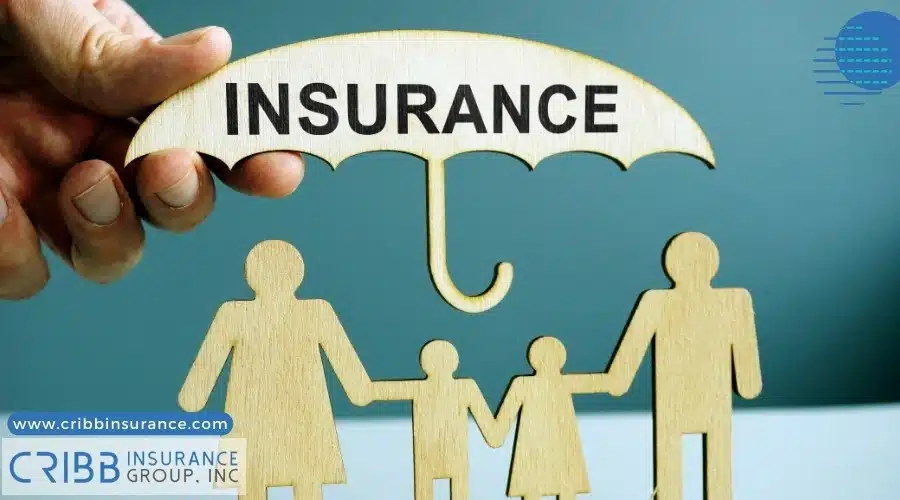Understanding the difference between whole vs universal life insurance can help you make the best choice for your financial future. Both types of policies offer lifelong coverage, but they work in unique ways. This article will break down the key differences between whole vs universal life insurance to help you see which option fits your needs.
Whole vs Universal Life Insurance Key Differences
Whole vs universal life insurance policies share some similarities but differ in critical ways. Knowing these differences can help you decide which one best suits your goals.

Premium Flexibility and Stability Comparison
Premium payments are a major consideration when choosing between whole vs universal life insurance. Whole life insurance offers stability with fixed premiums, meaning your payments stay the same throughout the policy. This stability can be reassuring, especially for long-term planning. In contrast, universal life insurance offers flexibility. With Universal Life, you can adjust your premium payments within certain limits, which can be useful if your income changes over time. However, this flexibility can also mean higher costs if you don’t manage the policy carefully.
Cash Value Accumulation and Growth Potential
Both whole and universal life insurance policies build cash value over time, but they do so differently. Whole life insurance grows cash value at a fixed rate, providing a predictable growth pattern. This steady growth appeals to those who prefer a straightforward policy without surprises. On the other hand, universal life insurance allows cash value to grow based on market performance, offering the potential for higher returns. However, market-based growth means the cash value can fluctuate, which adds risk. For those willing to manage their policy actively, universal life might offer more growth potential.
Impact on Death Benefits Over Time
Death benefits are essential to life insurance, providing financial support for your beneficiaries. With whole vs universal life insurance, the death benefit structure differs. Whole life insurance has a fixed death benefit, ensuring your loved ones receive a guaranteed amount. This can be ideal if you want a set amount to be passed on regardless of economic conditions. Universal life insurance, however, allows for an increase in death benefits as cash value grows, offering some flexibility. However, this added benefit depends on market performance, so careful management is required to maximize potential payouts.
Pros and Cons Whole vs Universal Life Insurance
Choosing between whole vs universal life insurance requires weighing the pros and cons of each type. Both have unique advantages and disadvantages that may suit different financial needs and goals. This section covers what you need to know about the benefits and drawbacks of each policy type.

Pros of Whole Life Insurance
Whole life insurance offers stability and predictability, which appeals to many people. Here are some of its key advantages:
- Fixed Premiums: With whole life insurance, premiums remain the same throughout the policy’s life, providing stability in your budget.
- Guaranteed Death Benefit: Whole life insurance provides a fixed death benefit, so your beneficiaries receive a specific amount regardless of economic fluctuations.
- Steady Cash Value Growth: The cash value grows at a guaranteed rate, making it easier to estimate long-term value.
- Dividend Potential: Some whole life policies offer dividends, which can increase cash value or cover premium costs, although dividends are not guaranteed.
These features make whole life insurance suitable for those who prefer a “set it and forget it” approach to life insurance, where premiums and benefits remain consistent.
Cons of Whole Life Insurance
While whole life insurance has its advantages, it also comes with some downsides:
- Higher Premiums: Whole life insurance tends to have higher premiums than universal life, which may not suit everyone’s budget.
- Less Flexibility: Since premiums and death benefits are fixed, there’s little flexibility to adjust the policy as your financial situation changes.
- Limited Growth Potential: While cash value grows steadily, it’s generally at a lower rate than the potential market-based growth in universal life insurance.
- Complexity in Dividend Management: If your policy includes dividends, deciding how to use them can add a layer of complexity.
For those who prioritize flexibility or lower premiums, these drawbacks might make whole life insurance less appealing compared to universal life options.
Pros of Universal Life Insurance
Universal life insurance provides flexibility that may suit individuals looking for a more adaptable policy. Here are some of its key benefits:
- Adjustable Premiums: Universal life insurance allows policyholders to adjust premium payments within certain limits, making it a more flexible option.
- Flexible Death Benefits: You can adjust the death benefit as needed, which can be useful if your coverage needs change over time.
- Potential for Higher Cash Value Growth: Cash value in universal life insurance can grow based on market performance, offering a chance for higher returns compared to whole life insurance.
- Option to Borrow Against Cash Value: Like whole life, universal life also allows borrowing against the cash value, but with more flexibility on when and how much you can access.
These features make universal life insurance an appealing choice for those who anticipate income changes or want more control over their policy’s features and growth potential.
Cons of Universal Life Insurance
While universal life insurance offers flexibility, it also has some potential drawbacks:
- Variable Costs: Premiums can increase over time if the cash value isn’t sufficient to cover the cost of insurance, which requires careful management.
- Fluctuating Cash Value: Since cash value growth is tied to market performance, it can fluctuate, adding risk if market conditions decline.
- No Guaranteed Death Benefit: Unlike whole life insurance, universal life insurance does not always guarantee a fixed death benefit, making it less predictable.
- Requires Active Management: Policyholders must monitor and adjust their policies regularly to maximize benefits and avoid increased costs.
For those who prefer a hands-off approach, the need for active management and potential cost variability can make universal life insurance less desirable than the more predictable whole life option.
Choosing Between Whole and Universal Life Insurance
When choosing between whole vs universal life insurance, understanding how each policy aligns with your personal and financial goals can help make the decision easier. Each policy type offers unique benefits, so evaluating them based on your needs for stability, flexibility, and risk tolerance is key.

Which Policy Suits Long-Term Financial Goals
If your primary goal is to create a stable financial foundation for the future, whole life insurance might be the better choice. Whole life provides a guaranteed death benefit and fixed premiums, allowing for consistent budgeting. Additionally, its steady cash value growth, even if limited, helps build a predictable financial asset over time. This consistency makes whole life insurance attractive for those who want a dependable policy to pass on to beneficiaries or support their long-term estate planning.
In contrast, universal life insurance could be suitable if your long-term goals include maximizing growth potential and adjusting the policy as your financial situation changes. With universal life, the cash value can increase based on market performance, offering the potential for higher returns, although it comes with some risk. Universal life may suit those with a long investment horizon who are comfortable with some variability in growth.
Policy Options for Income Flexibility and Risk Tolerance
Your approach to income and financial risk should also influence your choice between whole vs universal life insurance. Whole life insurance works well for those with a steady income who prefer a low-risk investment. Its fixed premiums and guaranteed cash value growth create a predictable policy with minimal need for active management. This policy type is generally more suitable for individuals who prefer financial stability and are less concerned with market-based growth.
Universal life insurance, however, is a better fit for individuals seeking income flexibility and comfortable with some level of risk. Since premiums can be adjusted within certain limits, universal life allows for flexibility during periods of fluctuating income. Additionally, its market-linked cash value growth may appeal to those who are open to higher risk in exchange for potentially higher rewards. Universal life requires a more hands-on approach, making it ideal for policyholders actively managing their finances.
Examples of When Each Policy Works Best
Deciding between whole vs universal life insurance depends largely on individual circumstances. Here are some examples of when each policy type might be a good fit:
- Whole Life Insurance: This policy is ideal for individuals looking for predictable long-term coverage. For example, if you want to ensure your beneficiaries receive a set death benefit or if you’re planning to leave an inheritance, whole life offers guaranteed coverage that doesn’t depend on market conditions.
- Universal Life Insurance: This policy suits individuals who may need to adjust their insurance as life changes. For instance, universal life’s adjustable premiums provide valuable flexibility if you’re an entrepreneur or have an irregular income. Additionally, if you are comfortable with managing your policy and want the chance to increase cash value through market performance, universal life might be the better choice.
Each policy type serves distinct needs, and the right choice depends on your financial stability, income predictability, and comfort with market risk.
Common Riders for Life Insurance Policies
Life insurance riders allow you to customize your whole vs universal life insurance policy to fit your unique needs better. Riders add benefits that enhance the basic policy, providing additional protection or flexibility. Here are some common riders you might consider when deciding between whole and universal life insurance.
Disability Rider and Income Replacement Benefits
A disability rider can be a valuable addition to both whole and universal life insurance policies. This rider provides income replacement if you become disabled and cannot work. With this rider, the insurance company may cover your premium payments, ensuring your policy remains active even if you cannot earn an income. This benefit can be essential for individuals whose families rely on their income for financial stability. It adds a layer of security to your life insurance policy, allowing you to maintain coverage during unexpected life changes.
Long-Term Care Rider for Health Costs
The long-term care rider is another popular option, especially for those concerned about healthcare costs later in life. This rider helps cover expenses associated with long-term care services, such as nursing homes or in-home assistance, if you cannot perform daily activities independently. This rider can be added to either whole or universal life insurance policies. By incorporating long-term care benefits into your life insurance, you gain protection for both your health and your financial future, reducing the potential burden on your loved ones should you require extended care.

Return of Premium and Accelerated Death Benefit Riders
The return of premium rider guarantees that you will receive the premiums you’ve paid if you outlive the policy term. While more common with term life insurance, this rider is sometimes available with universal life policies. It provides a way to recoup your investment if the policy is no longer needed, adding extra value to your coverage.
The accelerated death benefit rider allows you to access a portion of the death benefit while you’re still living, under specific conditions, such as a terminal illness diagnosis. This rider can be used to cover medical expenses, reduce financial stress, or support your family in difficult times. It is available with both whole and universal life policies and can be a valuable option for individuals who want the flexibility to use part of their policy’s benefits while they are still alive.
Key Takeaways for Whole vs Universal Life Insurance
Choosing the right policy between whole vs universal life insurance depends on your financial goals, need for flexibility, and risk tolerance. Whole life insurance offers stability, fixed premiums, and guaranteed growth, making it suitable for those who want predictable, lifelong coverage. Universal life insurance, however, provides adjustable premiums and potential for higher growth, which may appeal to individuals with a higher risk tolerance and changing income.
For personalized guidance, Cribb Insurance Group Inc in Bentonville, AR, can help you explore these options. Understanding the pros and cons of each policy type ensures you make an informed choice that aligns with your long-term financial needs.
Frequently Asked Questions
How does cash value work in life insurance policies?
Cash value is a savings component in whole vs universal life insurance policies. In whole life, cash value grows at a fixed rate, while in universal life, it grows based on market conditions. Policyholders can borrow against the cash value or withdraw funds, providing financial flexibility. Cash value growth varies depending on the policy type and terms.
Can I switch from whole life to universal life insurance?
Switching from whole life to universal life insurance may be possible, but it depends on the insurance provider and the policy’s terms. Some insurers offer a conversion option, allowing policyholders to adjust their coverage. However, switching often involves fees, and it’s best to discuss your options with an insurance advisor.
What are the typical costs associated with life insurance riders?
The cost of life insurance riders varies based on the rider type and the base policy. Riders with disability or long-term care usually add a small percentage to the premium. Each rider has unique costs and conditions, so reviewing details with your insurer is essential to understand potential fees.
How do market conditions affect universal life policies?
In universal life insurance, cash value growth is tied to market performance, meaning fluctuations can impact your policy’s cash value. If the market performs well, cash value may increase. However, if it declines, cash value growth may slow or stop. Monitoring the market’s impact on cash value is crucial for universal life policyholders.
Is whole life insurance a good investment for retirement?
Whole life insurance can be a solid choice for retirement planning due to its stable cash value growth and guaranteed death benefit. It offers predictable returns and allows you to borrow against cash value if needed. While it may not replace traditional retirement investments, whole life insurance provides a reliable financial asset for long-term planning.
Contact Cribb Insurance Group Inc for Expert Guidance
For assistance with whole vs universal life insurance, contact Cribb Insurance Group Inc at (479) 286-1066 to speak with an experienced agent in Bentonville, AR.





